Starting off her career on gut bacteria research in Cape Town, Dr. Natacha Juste-Poinapen took a fascinating path applying her chemical engineering expertise to the marine environment, a place close to her heart, having grown up near the ocean. As the first hire at Oyster Heaven, Natacha focuses on enhancing oyster regeneration and evaluating restoration site suitability by studying the microbiological components of oyster reefs. She collaborates with DTU Aqua in Denmark, and Deltares and NIOZ in the Netherlands, bringing unique insights to our ambitious goal of restoring historic oyster reefs.
Four questions for Natacha to explore her journey to oyster restoration.
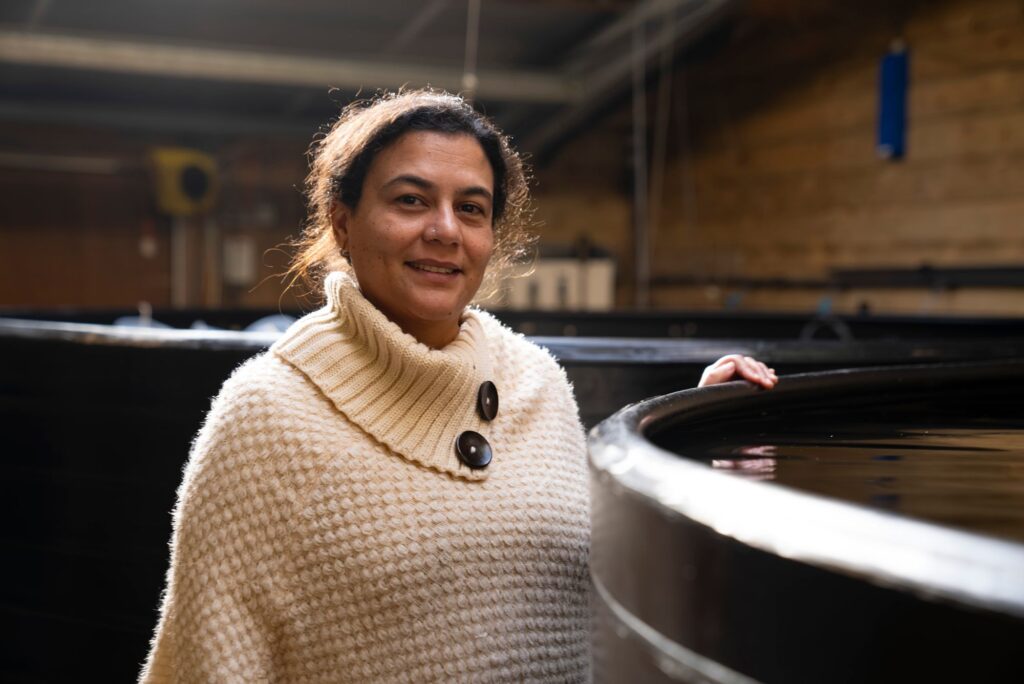
“Growing up, my favourite cartoon was ‘Once upon a time…life’, describing what happened in your body. I always believed that my love for sciences started there since I was so fascinated with how complex our bodies are. Of course, the microorganisms were those ugly looking characters that cause havoc but during the episode on the digestive system, they pictured the ‘good bacteria’ that would eat cellulose to help us digest. My other favourite part was when they would build DNA!”
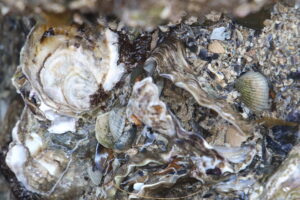
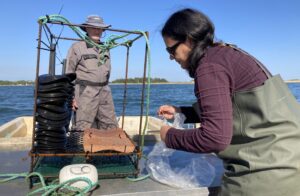
“After high school, I pursued a BSc Food Science, followed by a MSc in Molecular Biology, where I specialised in gut bacteria. During my PhD at the Advanced Water Management Centre at the University of Queensland, I combined chemical engineering with microbial ecology. It was amazing to see how bacteria and archaea could be used in bioremediation, biological waste treatment, and biogas production. Microorganisms’ adaptability also makes them valuable indicators of pollution and climate change. With 99.9999% still unexplored, their potential is incredibly exciting!”
“While working as a researcher in the Fiji Islands, I began studying marine microorganisms through projects involving Kai (bivalve), juvenile Hammerhead sharks, and the Suva watershed’s quality standards. Investigating the potential of microorganisms to assist in the settlement of oyster larvae and characterising their role in driving the nutrients cycle and degrading other potential pollutants which I found fascinating.”
“It is just a continuation of my journey which not only includes microorganisms but oysters and ecosystem services.”
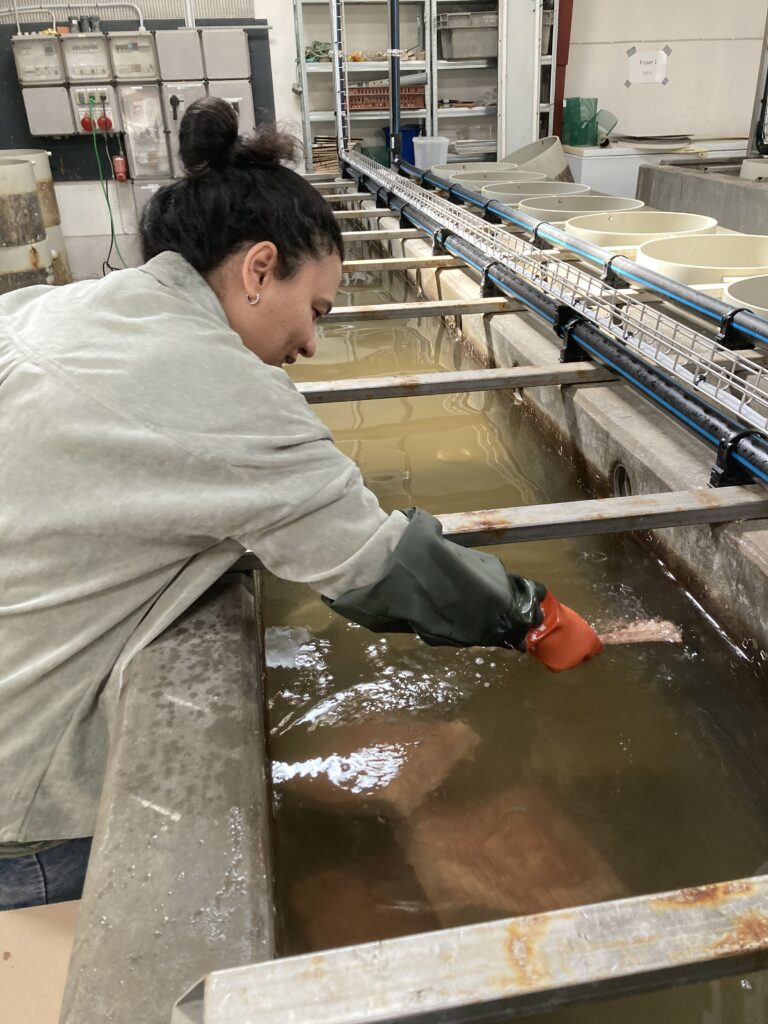
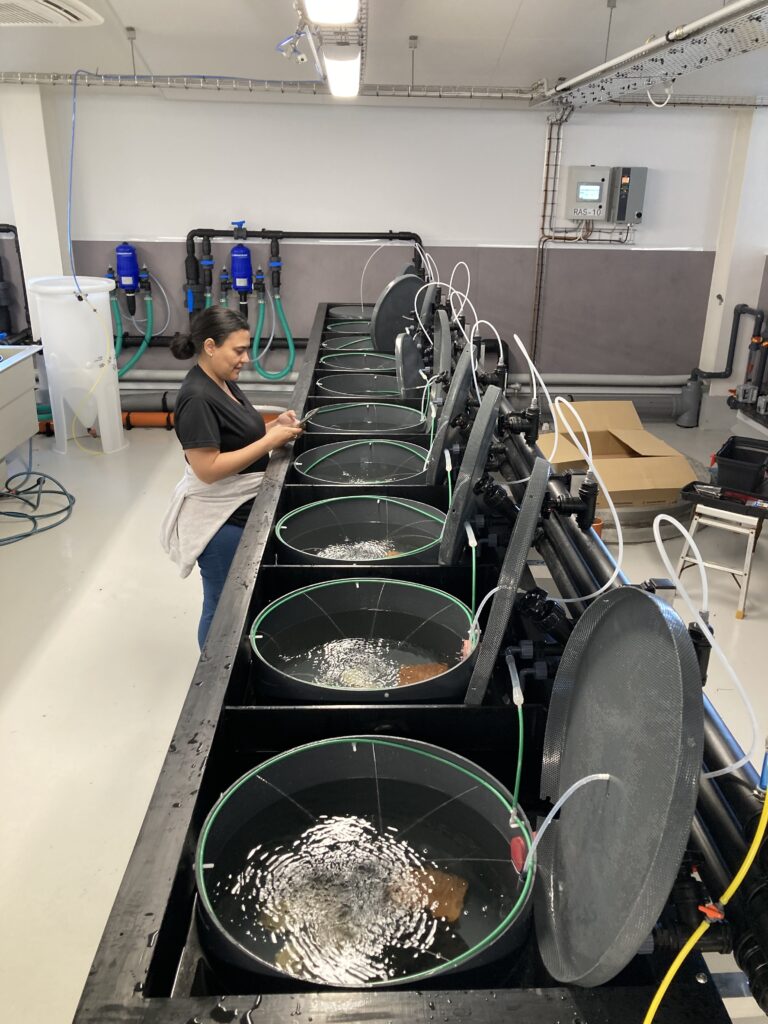
“When people talk about marine conservation or restoration, they mostly refer to macro species and would go as small as planktons and phytoplanktons. Very few are aware of the importance of microorganisms in marine ecosystems. With new technologies to explore various marine habitats, this is changing and I want to be there when the answers come out so we can apply what we learn.”
“Right now, we may be starting with the restoration of oysters but the eventual reef will give rise to a rich ecosystem with so much to explore, investigate and learn from.”
“I want to challenge the belief that only marine scientists can work in ocean science. As a passionate microbiologist, I was encouraged by Oyster Heaven’s founder, George Birch, to expand my microbiology boundaries and apply them to oysters. Understanding oyster biology is essential because microorganisms, being sensitive to change, are influenced by oysters. For instance, oysters play a key role in the nutrient cycle by trapping nutrients for microorganisms.”
“A healthy oyster reef is crucial, so understanding the oyster life cycle and its environmental impact is necessary. While I wouldn’t call myself an “oyster expert,” I’ve learned so much in my 2.5 years at Oyster Heaven. I’m fortunate to have a network of experienced oyster professionals, such as the amazing team at DTU Aqua, who fill any gaps in my knowledge, share their expertise, and collaborate on generating new insights.”
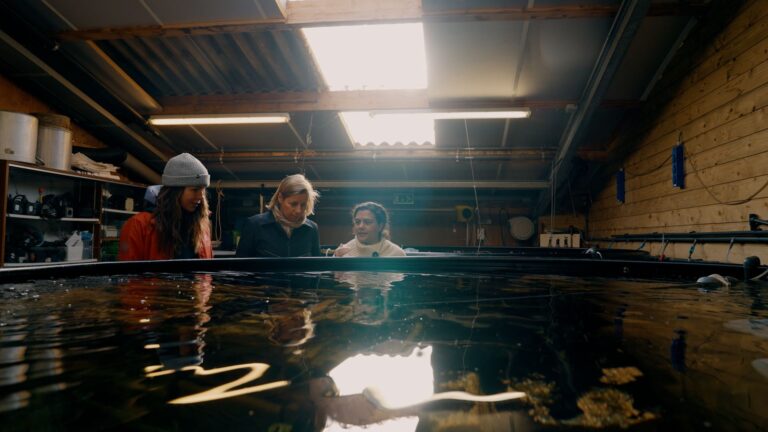
As part of the Ocean Restoration Programme, Natacha is featured in the ‘Blue Horizons series’ produced for Nestlé Purina PetCare Europe by BBC StoryWorks Commercial Productions and presented by the World Ocean Council. In the episode about ocean restoration in Zeeland, she talks about her work on oyster restoration.